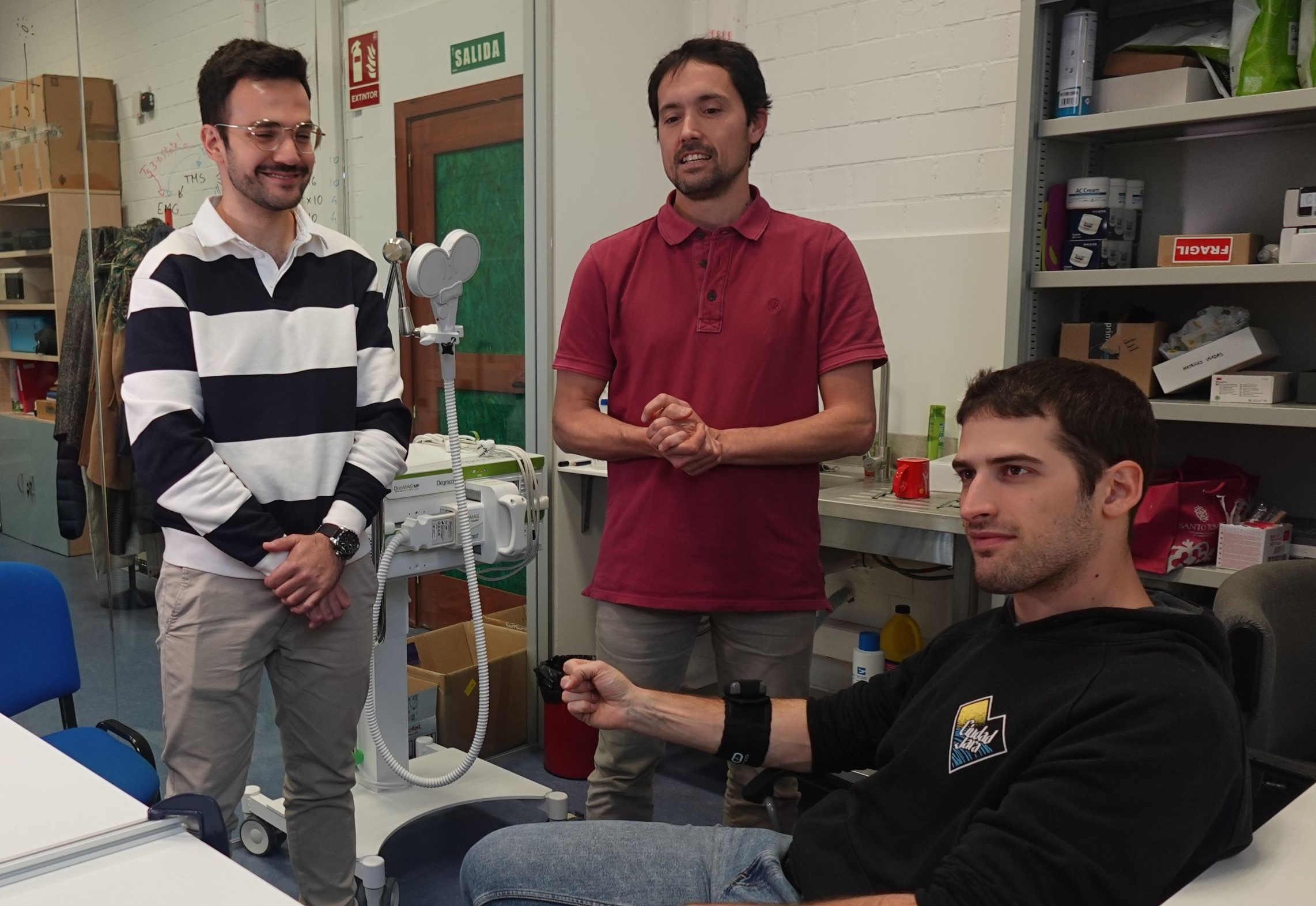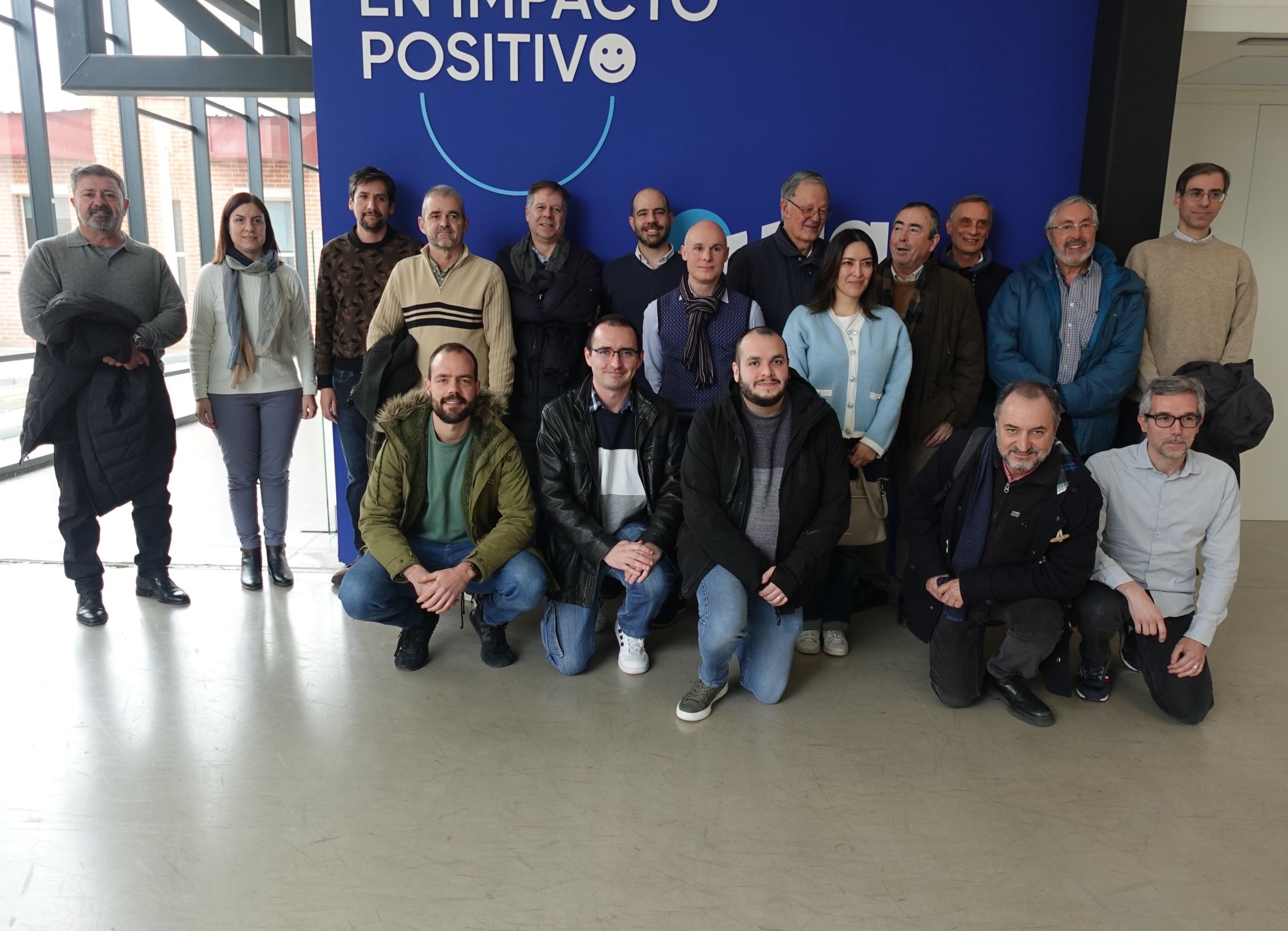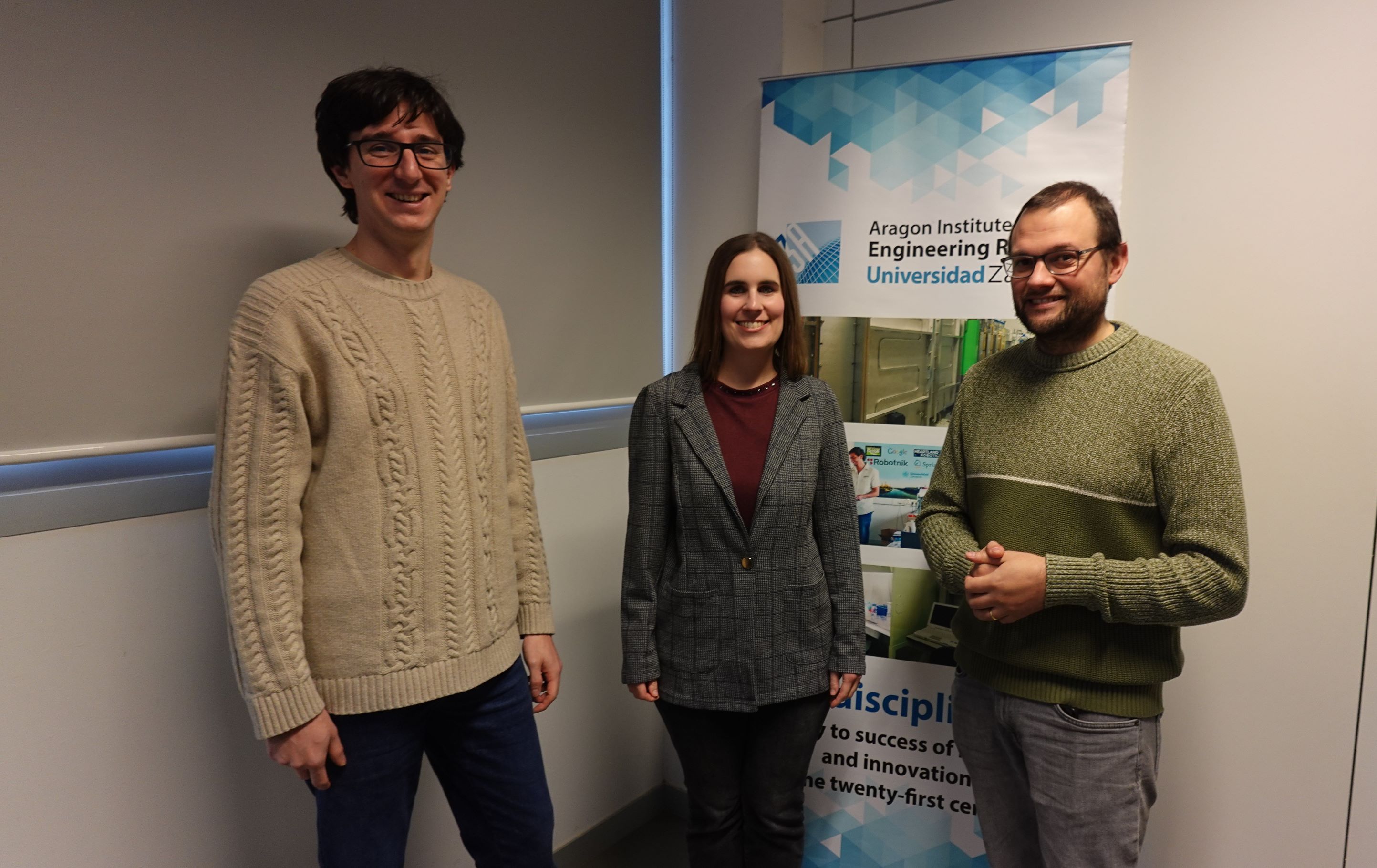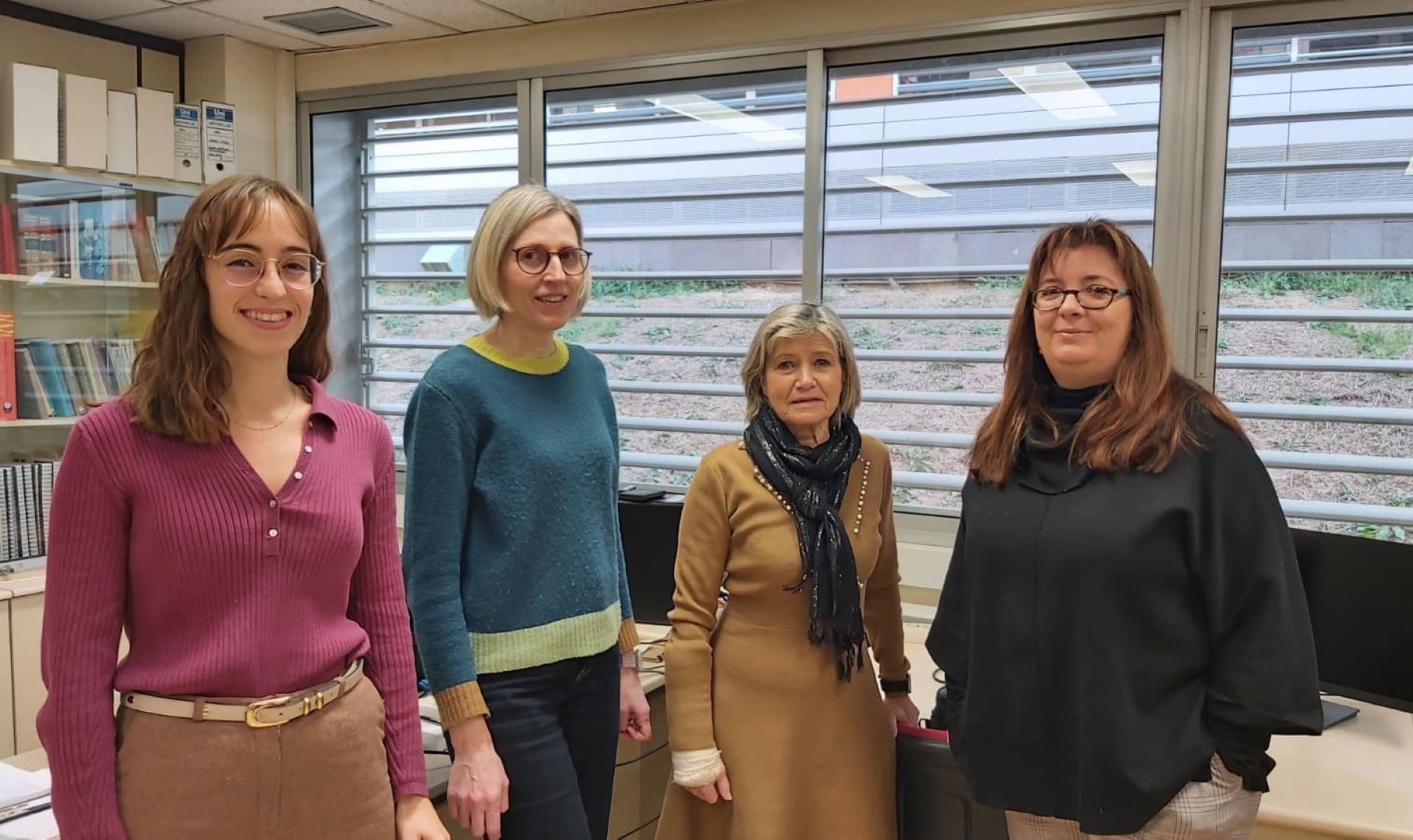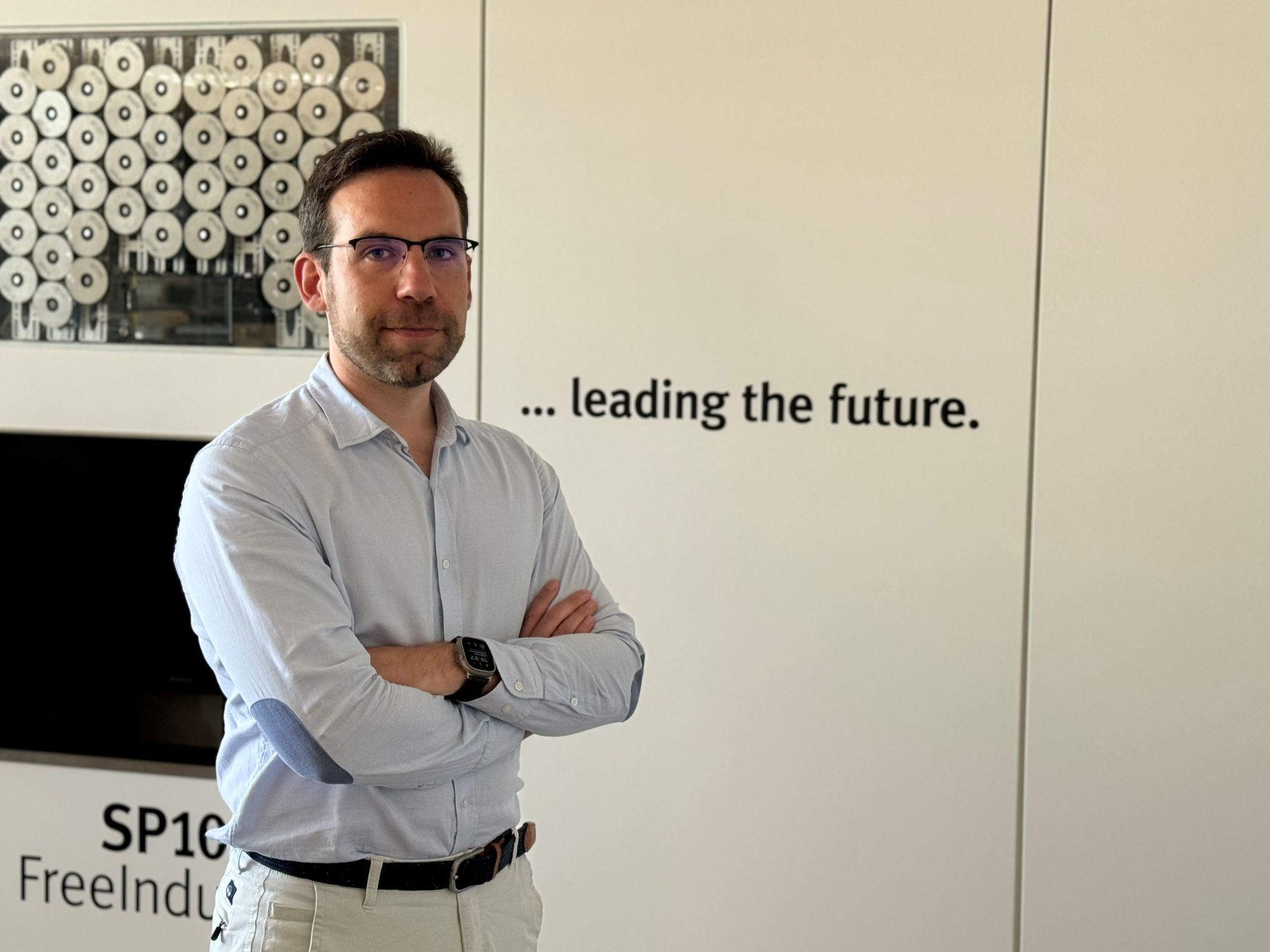
The I3A Unizar researcher, Óscar Lucía, has been elected president of the Young Academy of Spain, a position he will hold for the next four years. He is the first Aragonese to occupy this position and, also, for the first time an engineer is in charge of the presidency of the Academy.
The Young Academy of Spain is made up of 50 young researchers from different disciplines, ranging from the Humanities, Science and Technology. Its objectives include promoting science as a career option among young people, promoting scientific training through the promotion of knowledge, research and innovation as drivers of economic development and serving as a forum and platform for young researchers in our country so that they have the opportunity to collaborate and contribute to shaping policies to promote knowledge in Spain.
Óscar Lucía Gil was born in Zaragoza on 29 August 1983, he is an industrial engineer by the University of Zaragoza, he obtained the number 1 of his promotion, he has a PhD in Industrial Technologies, with an Extraordinary Doctorate Award. He has carried out several research stays in the USA (Virginia Tech) and Germany (TU Berlin). Currently, he is a University Professor in the Electronics Technology Area at the University of Zaragoza and a researcher at the I3A (Aragon Institute for Engineering Research), within the Power Electronics and Microelectronics Group (GEPM). He is also a Senior Member of the IEEE. Since 2022, he is a full member of the Academia Joven de España, an institution he now chairs.
Its research activity focuses on the field of power electronics with industrial, domestic, biomedical and electric vehicle applications. Both its scientific lines and the transfer to industry and society have had a high impact. It is worth highlighting its leadership in scientific production in the field of induction heating systems. This has led to the University of Zaragoza being recognised as the world's leading institution in research into domestic appliances by Clarivate.
Prof. Lucía has collaborated in the design and development of numerous products put on the market in the fields of household appliances and electric vehicles, as well as in the development of new electronic systems for electrosurgery and cancer treatment. As a result of this activity, he has more than 60 patent families with more than 150 international extensions.
He also leads technical committees and conferences at international level, and is a member of the editorial board of the main scientific publications in his field. For these activities, he has received numerous national and international awards, including the ‘Agustín de Betancourt y Molina Prize’, awarded by the Royal Academy of Engineering, and the Leonardo scholarship from the BBVA Foundation.
About the Young Academy of Spain
The Young Academy of Spain was founded in 2019 by Javier García Martínez, Javier M. Moguerza, Ignacio Palomo Ruiz, Maite M. Aldaya, Pedro Martínez, Jesús Martínez de la Fuente and Toni Gabaldón, the seven Spanish members of the Global Young Academy at the time. Among its objectives, the following stand out:
- To promote science as a career option among young people by making exceptional researchers from any country, and in particular from Spain, visible as role models.
- Promote scientific training through the promotion of knowledge, research and innovation as drivers of economic development.
- To serve as a forum and platform for young researchers in our country so that they have the opportunity to collaborate and contribute to shaping the policies for the promotion of knowledge in Spain.
One of the distinguishing features of the Young Academy of Spain is that membership is limited to 5 years. This peculiarity makes it possible to preserve the youth of its 50 members, incorporating 10 members each year to replace those whose membership ends in that year.
The Young Academy of Spain stands out for its multidisciplinary nature, with professionals from fields as diverse as computer science, engineering, archaeology, cultural anthropology, palaeontology, pharmacy, veterinary science, biology, chemistry, psychology, physics, European politics and culture, tourism, art history, dance, neuroscience, ecology, environment, mathematics, artificial intelligence, sports science, linguistics, philology, food technology and philosophy. They are also distributed throughout Spain and abroad.
The Young Academy is made up of a staff of 50 brilliant young researchers, including: 25 European Research Council grants, 14 Starting Grants, 7 Consolidator Grants and 4 Proof-of-Concept, 9 Marie Curie Sklodowska Fellowships, 12 Ramón y Cajal and 15 others with similar programmes of excellence. Between them they have more than 100 patents and several entrepreneurial ventures. They are highly awarded people, we can find 5 National Research Awards, 4 Princess of Girona Awards, a King Jaime I Award, a Julián Marías Award, two Miguel Catalán Awards and 6 Awards of the Spanish Royal Society of Chemistry, a Juan Abelló Award of the Royal National Academy of Pharmacy, an Agustín de Betancourt y Molina Award of the Royal Academy of Engineering, and several important international awards. In addition, one of the Full Academicians holds two Guinness World Records and the outgoing president of the Spanish Junior Academy was the first Spanish president of the Union of Pure and Applied Chemistry (IUPAC).
